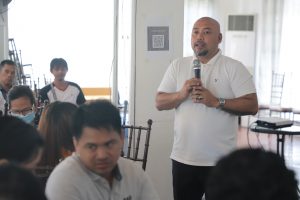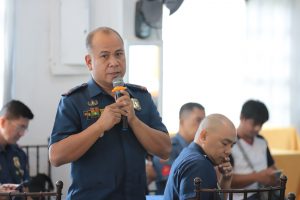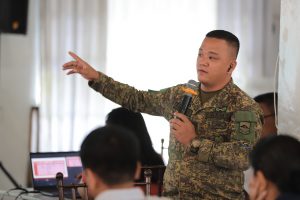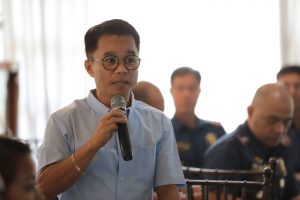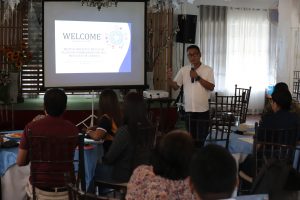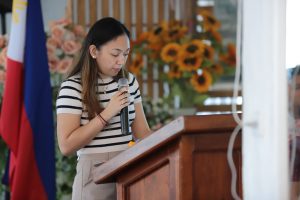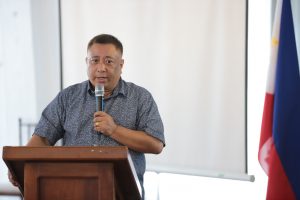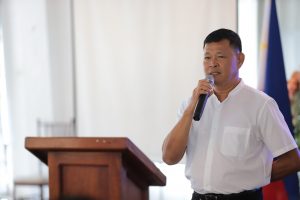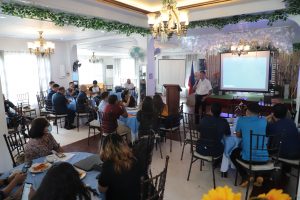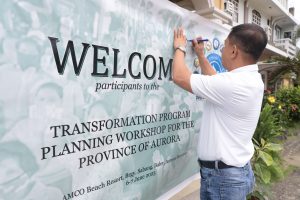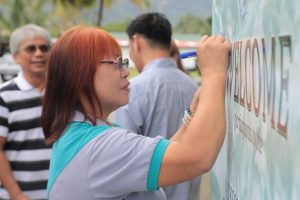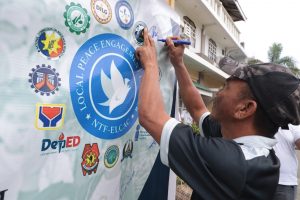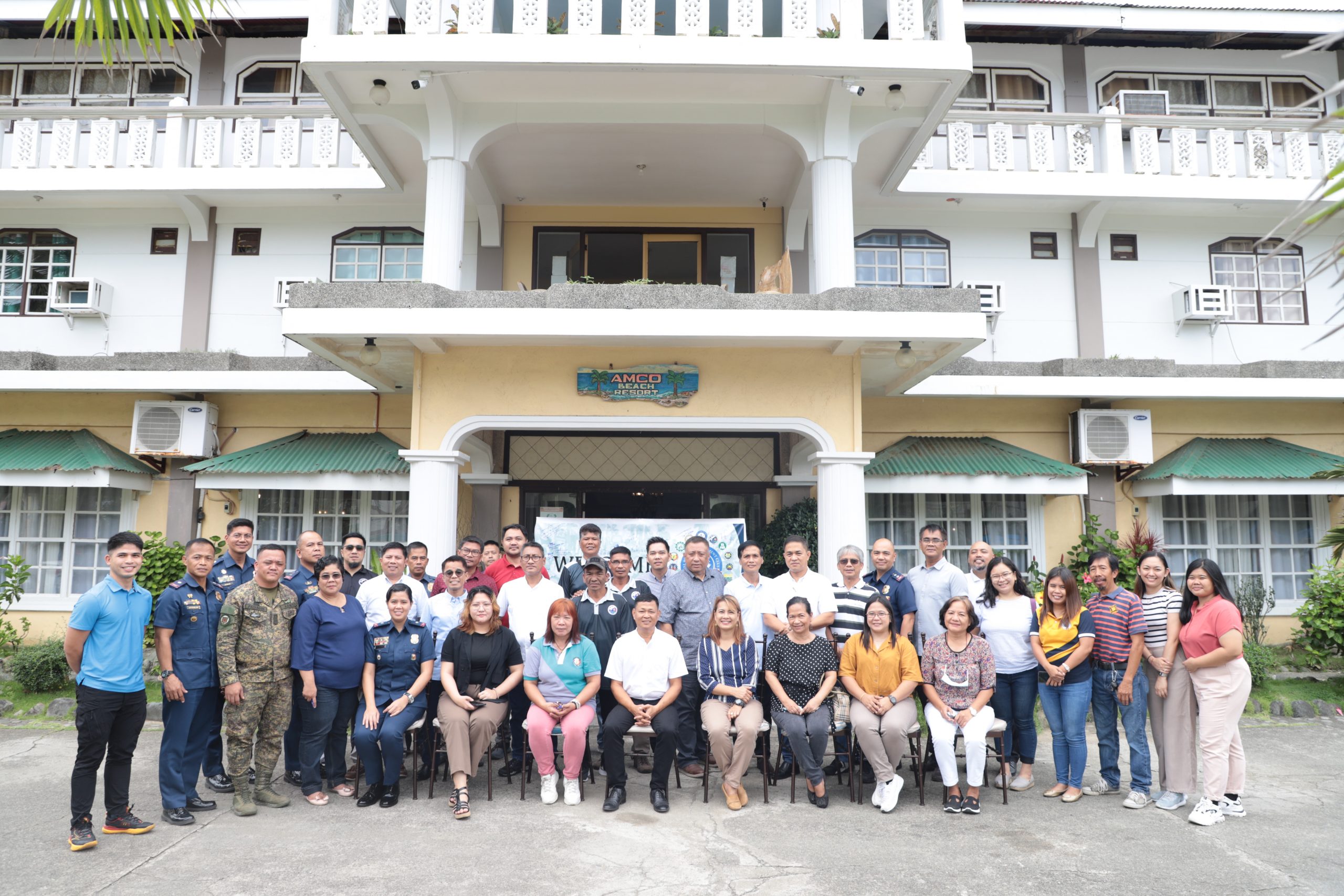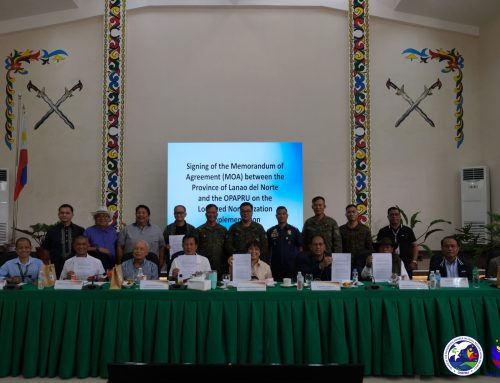BALER, AURORA — Peacebuilding efforts in the province continue to gain momentum as member-agencies of the Provincial Task Force to End Local Communist Armed Conflict (PTF-ELCAC) and former rebels (FRs) participated in a Transformation Program Planning Workshop held here on Wednesday, June 7.
The two-day planning workshop aimed to facilitate the formulation of plans and programs to operationalize the Transformation Program for FRs, their families and communities in Aurora Province. It utilizes a participatory process that supports genuine dialogue, which will enable former rebels to articulate their narratives, concerns, and issues.
According to Office of the Presidential Adviser on Peace, Reconciliation and Unity (OPAPRU) Regional Adviser on Peace and Security for Central Luzon, BGen. Abraham Casis, the mainstreaming of the updated Localized Peace Engagement (LPE) initiative and Transformation Program aims to consolidate, integrate and harmonize all peace and development efforts of line agencies to address the decades-long communist insurgency.
“Ang localized peace engagement, mainstreaming and Transformation Program para sa mga dating rebelde, sa kanilang pamilya at kanilang komunidad are envisioned to consolidate, integrate and harmonize all government agencies efforts with the goal to end local communist armed conflict and promoting community resilience, effective good governance and making them active participants for peace and development in their respective communities,” Casis said.
This Transformation Program is being implemented by the National Task force to End Local Communist Armed Conflict (NTF-ELCAC) through its LPE cluster.
Abandoning guerilla life
‘Ka-Danger,’ an FR and a member of the Special Project Team (SPT), was among the participants of the Transformation Program planning workshop.
He shared that he is happy with his decision to abandon guerilla life and help the government to implement peacebuilding efforts in his community.
“Noon, talagang tago nang tago, talagang geurila ang pagkilos. Lahat planado, laging may kaakibat na panganib. ‘Yung gawaing bawat kilos mo, kailangan tiayakin ang seguridad. Kung sa ngayon, ay ganun pa rin naman pero hindi kasing tindi noon. Sa ngayon, nag-iingat tayo dahil baka may galit sa atin ang dati nating kasamahan,” ‘Ka-Danger’ recalled.
“Sumuko ako noong 2018 noong nakita ko ang sinseridad ng dating Pangulong Rodrigo Duterte. Hinikayat niya lahat na sumuko dahil may magandang buhay na naghihintay daw at talagang meron naman. Kaya ngayon, nag-decide ako na tumulong sa gobyerno at makibahagi sa mga gawaing pangkapayapaan,” he added.
Meanwhile, ‘Ka-PJ,’ also an FR and SPT member, said that he decided to lay down his arms and help the government in organizing former rebels into an association so that they could also enjoy the dividends of peace and development.
“Ang gawain namin bilang SPT ay ipaliwanag ang ganitong sitwasyon. Hindi namin sila hinihimok muli para lumaban at mag-armas. Hinihimok natin sila para din sa kinabukasan nila at para sa kanilang pamilya,” he said.
The members of the SPT act as consultants, coordinators and facilitators who are tasked to provide accurate and updated information on the progress the FRs are making as they reintegrate themselves into mainstream society.
The FRs-turned-development workers will also assist the OPAPRU’s Area Management Units (AMUs) and other technical personnel in formulating better and more responsive programs that aim to address the needs of their communities and neighboring conflict-vulnerable areas.
A more responsive peace framework
“Through the LPE cluster, co-chaired by the Office of the Presidential Adviser on Peace, Reconciliation and Unity (OPAPRU) and the Department of the Interior and Local Government (DILG), in order to sustain the gains of the Aurora Provincial Task Force, the revitalized peace framework is necessary…to be more responsive to the current and future needs of these former rebels who are initially consolidated into people’s organization and their communities,” Casis explained.
During the workshop, the PTF-ELCAC’s social healing and reconciliation, security, confidence-building and socio-economic clusters identified pressing insurgency-related issues the province is currently facing, as well as presented solutions to the concerns raised.
These recommendations included the consolidation of the list of former rebels (FRs) and their children; the issuance of standard IDs for FRs so they can claim benefits from the government; sustaining and maintaining halfway houses, as well as the provision of emotional and psychological support for FRs; the conduct of a caravan in hard-to-reach communities to bring essential government services to residents; and the conduct of specialized learning program interventions for the children of FRs to prevent bullying and discrimination among them.
According to Acting Presidential Adviser on Peace, Reconciliation and Unity Sec. Isidro Purisima, the conduct of the Transformation Planning Workshop is essential in the formulation of a peace framework that would effectively address peace, security and development concerns in the province.
“Yung pag-organize ng Local Task Force, dapat merong peace framework ang bawat probinsya, bawat lokalidad. Ano ‘yung peace framework? Ito ‘yung gagawin natin following yung ELCAC strategy na whole-of-nation [approach]. ‘Yun ang susundan natin. Sinimplify lang natin dito by addressing the four components of the LPE-TP,” Purisima explained.
“Lahat tayo, we should have a role dito sa pag-implement natin. Ang isa sa mga principle ng National Task Force – ELCAC is good governance. Paano natin masasabi na may good governance? Unang-una, nandun dapat ang leadership ng local chief executive natin kasi very critical ‘yung leadership ng isang lokalidad kasi sila ang talagang [magbibigay] kung saan ang direksyon natin pagdating sa peace and security and development sa isang komunidad,” Purisima added.
The impact of a localized approach
Both ‘Ka-PJ’ and ‘Ka-Danger’ believe that a localized and holistic approach in ending local armed conflict has been very helpful not just to them, but also for their families and communities.
“Kasi ang pananaw namin ‘dyan, ngayong pagkakataon na ito, parang nagkaroon ng atensyon ‘yung lahat ng nasa local government at nagtutulong-tulong sila para maiangat ang aming sarili hindi lang sa usapin ng kabuhayan kundi pati na rin sa kasanayan. ‘Yung TESDA at DOLE tine-training nila kami at nakakatulong iyon,” Ka-PJ said.
“Lagit-lagi namin sa kanila (former rebels) pinapaliwanag na ‘yung gobyerno ‘eh meron na silang atensyon para sa atin. Hindi ‘yung dati na panahon ng mga naunang presidente, nagkaroon ng negotiations pero mali. Kumbaga, ‘yung mga pondo nila, naibigay, hindi na-handle ng maayos. Ngayon, sinisikap namin, kung sakali magkaroon ng ganoon muli, ay ma-handle ng maayos kasi ang pananaw namin, pagkat ito’y naiayos at napaunlad, hindi lang mga FRs kundi pati ‘yung mga walang trabaho sa komunidad na pwede na rin namin matulungan,” he added.
Ka-Danger and Ka-PJ are among the growing number of FRs-turned-development workers who have withdrawn their support from the communist terrorist group and are demonstrating that good things come to those who choose the path of peace. ###
